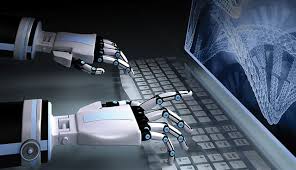ETHICAL CHALLENGES IN ARTIFICIAL INTELLIGENCE AND AUTOMATION
Introduction: Artificial Intelligence (AI) and automation technologies have witnessed rapid advancement in recent years, revolutionizing various sectors and aspects of human life. While these advancements bring numerous benefits and opportunities, they also raise significant ethical challenges. This article explores some of the key ethical concerns associated with AI and automation, highlighting the importance of addressing them to ensure responsible and beneficial deployment of these technologies.
- Bias and Discrimination: One of the primary ethical challenges in AI and automation is the potential for bias and discrimination. Machine learning algorithms can inadvertently perpetuate biases present in the data they are trained on, leading to unfair treatment of certain individuals or groups. This can manifest in areas such as hiring processes, loan approvals, and criminal justice systems. Addressing bias requires careful consideration of training data, algorithm design, and continuous monitoring to detect and rectify discriminatory outcomes.
- Privacy and Data Protection: AI and automation heavily rely on vast amounts of data for training and decision-making. However, the collection, storage, and use of personal data raise significant privacy concerns. It is crucial to ensure that individuals’ privacy rights are respected and that data is handled securely. Striking a balance between data access for AI development and protecting individuals’ privacy is an ongoing challenge that requires robust policies, regulations, and transparency in data practices.
- Accountability and Transparency: The complexity of AI systems and their decision-making processes presents challenges regarding accountability and transparency. When AI-powered systems make critical decisions, such as in autonomous vehicles or healthcare diagnostics, it becomes essential to understand how those decisions are reached. Lack of transparency in algorithms and their decision-making processes can hinder public trust and raise concerns about the responsibility and accountability of AI developers and operators.
- Unemployment and Workforce Displacement: Automation technologies have the potential to disrupt industries and replace human labor in various jobs. While automation can lead to increased efficiency and productivity, it also raises concerns about unemployment and workforce displacement. Ensuring a just transition for affected workers and providing opportunities for reskilling and upskilling becomes crucial to mitigate the negative social and economic impacts of automation.
- Ethical Decision-making: AI systems are increasingly being tasked with making decisions in complex and morally ambiguous situations. This raises questions about how these systems should be programmed to handle ethical dilemmas. Determining the appropriate ethical frameworks and ensuring that AI systems align with societal values and norms is a significant challenge. The development of ethical guidelines and standards for AI and automation becomes necessary to navigate these complex moral choices.
Conclusion: Ethical challenges in artificial intelligence and automation are multifaceted and require careful attention from developers, policymakers, and society as a whole. Addressing these challenges involves interdisciplinary collaboration, involving experts from fields such as ethics, computer science, law, and social sciences. By proactively considering the ethical implications and integrating responsible practices into the development and deployment of AI and automation, we can harness the potential benefits while minimizing the risks and ensuring a more inclusive and equitable future.


